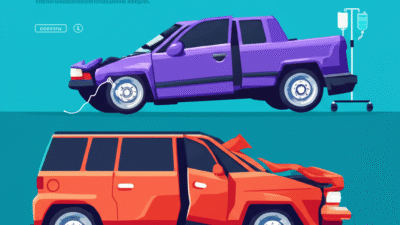A Beacon of Hope: How Indus Hospital’s Zakat Model Transforms Lives in Pakistan
In a nation grappling with significant healthcare disparities, where quality medical treatment often remains a luxury far out of reach for millions, The Indus Hospital & Health Network (TIH) stands as a monumental testament to what focused philanthropy and unwavering commitment can achieve. At the heart of its revolutionary model lies the profound principle of Zakat – a cornerstone of Islamic giving – meticulously channelled to provide completely free, high-quality healthcare to every patient, without discrimination.
This article delves deep into the intricate workings of the Indus Hospital Zakat model, exploring its profound impact, its adherence to the highest standards of transparency, and its role in reshaping the healthcare landscape of Pakistan. We will unravel how this unique initiative, driven by the generosity of Zakat payers, offers a lifeline to countless individuals, ensuring that no one is denied medical care due to their inability to pay.
The Stark Reality: Healthcare Challenges in Pakistan
Pakistan, with its rapidly growing population, faces formidable challenges in its healthcare sector. A significant portion of its populace lives below the poverty line, rendering private medical facilities unaffordable for many. Public hospitals, while offering subsidized care, are often overburdened, under-resourced, and struggle to maintain consistent quality. This creates a gaping chasm between the need for healthcare and its accessibility, leading to preventable deaths, exacerbated illnesses, and a perpetuation of the poverty cycle.
Families are frequently forced to make agonizing choices between medical treatment and basic necessities like food and shelter. Catastrophic health expenditures push countless households into deeper destitution annually. It is against this backdrop of immense need that The Indus Hospital emerged, not just as another healthcare provider, but as a paradigm-shifting institution founded on the radical idea of universal, free, and quality healthcare.
Understanding Zakat: A Pillar of Islamic Philanthropy
To fully appreciate the genius and impact of the Indus Hospital model, one must first grasp the essence of Zakat. Zakat is one of the five pillars of Islam, an obligatory annual contribution levied on the wealth of financially able Muslims. It is not merely charity but a fundamental religious duty and a system of social welfare designed to purify wealth and redistribute it to those in need.
The Quran and Sunnah (teachings and practices of Prophet Muhammad PBUH) meticulously outline the categories of individuals eligible to receive Zakat. These include the poor (Fuqara), the needy (Masakeen), those in debt, new converts to Islam, travellers, and those working to collect and distribute Zakat, among others. Crucially, Zakat is intended to alleviate poverty, empower the disadvantaged, and foster social justice within the community.
Unlike voluntary charity (Sadaqah), Zakat has specific calculations and conditions. It is typically 2.5% of one’s accumulated wealth (cash, gold, silver, investments, etc.) that has been held for a full lunar year and exceeds a minimum threshold (Nisab). Its primary purpose is to ensure that wealth circulates within society, preventing its concentration and fostering economic equilibrium.
The power of Zakat lies not only in its financial impact but also in its spiritual significance. It reminds adherents of their responsibility towards society and reinforces the concept of collective well-being. When properly collected and distributed, Zakat can be a transformative force, capable of uplifting entire communities. This inherent potential of Zakat is what The Indus Hospital has so effectively harnessed.
The Genesis of a Vision: The Indus Hospital Story
The journey of The Indus Hospital began in 2007 with a single, state-of-the-art tertiary care hospital in Karachi. Its founders, a group of dedicated doctors and philanthropists, shared a revolutionary vision: to establish a hospital that would provide high-quality medical treatment to all, free of charge. This was an audacious goal in a country where healthcare costs were rapidly escalating.
From its inception, the founders understood that to sustain such a model, they needed a robust and ethical funding mechanism. They turned to Zakat, recognizing its immense potential as a sustainable source of funding for healthcare for the poor and needy. Their commitment was clear: all Zakat donations would directly fund patient care, with administrative and operational costs covered through other philanthropic contributions and grants. This fundamental principle laid the groundwork for a model that would inspire trust and attract widespread support.
What started as a single hospital has since blossomed into a vast and integrated healthcare network, encompassing multiple hospitals, physical rehabilitation centers, blood centers, primary care sites, and public health programs across Pakistan. This expansion is a testament to the effectiveness and trustworthiness of its unique philanthropic model, largely powered by Zakat.
The Indus Hospital Zakat Model: A Blueprint for Impact
The Indus Hospital’s Zakat model is not just about collecting funds; it’s a meticulously designed system built on pillars of ethics, transparency, and patient-centricity.
1. 100% Zakat Utilization for Patient Care
Perhaps the most compelling feature of the Indus Hospital Zakat model is its unwavering commitment to utilizing 100% of Zakat funds directly for patient treatment. This means that every single rupee received as Zakat goes towards covering the costs of diagnosis, medication, surgery, and all other medical interventions for deserving patients.
This promise is a powerful differentiator and a key factor in building donor trust. Donors can be assured that their Zakat, a religious obligation, is being used precisely as intended – to save lives and alleviate suffering among the eligible categories.
2. Separate Funding for Administrative and Operational Costs
To uphold the 100% Zakat utilization pledge, The Indus Hospital maintains a strict separation of funds. All administrative, operational, infrastructure development, and research costs are covered through other sources of funding. These include:
- Sadaqah (voluntary charity): General donations that are not bound by Zakat eligibility rules.
- Grants: From local and international philanthropic organizations, governments, and corporations.
- Endowments: Long-term investments whose returns support the hospital’s operations.
- Corporate Social Responsibility (CSR) initiatives: Partnerships with businesses.
This dual funding strategy is critical. It allows the Zakat fund to remain untainted by overheads, while ensuring the smooth and efficient running of a complex healthcare network. This transparency is regularly audited and communicated to donors, reinforcing the hospital’s integrity.
3. Robust Eligibility Assessment for Zakat Recipients
Ensuring that Zakat reaches the truly deserving is paramount. The Indus Hospital has developed a comprehensive and empathetic eligibility assessment process. This process is designed to identify patients who meet the Islamic criteria for Zakat receipt (primarily the poor and needy) while maintaining their dignity and privacy.
Key aspects of the assessment include:
- Socio-economic background checks: Detailed evaluations of family income, assets, liabilities, and living conditions.
- Interview process: Trained social workers and dedicated staff conduct sensitive interviews with patients or their guardians.
- Documentation: Verification of identity and financial status through relevant documents.
- Categorization: Patients are categorized based on their level of need, ensuring those in the most dire circumstances receive priority.
This rigorous process prevents misuse of Zakat funds and guarantees that the generosity of donors directly benefits those for whom it is intended, upholding the sacred trust associated with Zakat.
4. Comprehensive Services Covered by Zakat
Zakat funds at The Indus Hospital cover an extensive range of medical services, ensuring holistic care for patients. This includes:
- Emergency Services: Life-saving interventions during critical moments.
- Outpatient Departments (OPD): Consultations, diagnostics, and initial treatments.
- Inpatient Care: Hospitalization, ward charges, and continuous medical supervision.
- Surgical Procedures: Complex surgeries across various specialties, including highly expensive ones like cancer surgeries, cardiac procedures, and organ transplants (liver, kidney, bone marrow).
- Medication: Provision of necessary drugs, often a significant financial burden for patients.
- Diagnostic Tests: Advanced imaging (MRI, CT scans), laboratory tests, and pathology services.
- Dialysis: Life-sustaining treatment for kidney failure patients.
- Chemotherapy and Radiotherapy: Crucial treatments for cancer patients.
- Maternal and Child Health: Pre-natal, delivery, and post-natal care, as well as pediatric services.
- Physical Rehabilitation: For patients recovering from injuries, strokes, or living with disabilities.
This comprehensive coverage means that once a patient is deemed eligible for Zakat, they receive the full spectrum of necessary care without any financial burden, allowing them to focus solely on recovery.
5. Transparency and Accountability
The Indus Hospital prides itself on its transparency and accountability, which are critical for maintaining donor trust.
- Audited Financial Statements: The hospital’s financial records, including Zakat funds, are rigorously audited by independent, reputable firms. These audits are made publicly available, demonstrating adherence to financial best practices.
- Regular Reporting: Donors receive regular updates and impact reports detailing how their Zakat has been utilized and the lives it has touched.
- Donor Helplines and Engagement: A dedicated team is available to answer donor queries, provide information, and facilitate their engagement with the hospital’s mission.
- Shariah Compliance: The hospital also engages Islamic scholars to ensure that its Zakat collection and distribution mechanisms are fully compliant with Shariah principles.
This commitment to transparency ensures that Zakat payers are confident in the ethical and effective deployment of their contributions.
Beyond Treatment: A Holistic Approach to Healthcare
The impact of Indus Hospital’s Zakat model extends far beyond individual patient treatments. It fuels a holistic approach to public health that addresses systemic issues and builds healthier communities.
1. Preventive Healthcare and Public Health Initiatives
Recognizing that prevention is better than cure, TIH invests significantly in public health programs. These initiatives, often supported by a combination of Zakat and other funds, aim to reduce the burden of disease through:
- Immunization campaigns: Protecting children from preventable diseases.
- Awareness programs: Educating communities on hygiene, nutrition, and early disease detection.
- Maternal and child health outreach: Promoting safe pregnancies and healthy child development in remote areas.
- Screening programs: For conditions like diabetes, hypertension, and various cancers.
By focusing on prevention, TIH aims to reduce the future need for complex, expensive treatments, creating a more sustainable healthcare ecosystem.
2. Education, Research, and Medical Innovation
A critical component of building a resilient healthcare system is investing in human capital and advancing medical knowledge. TIH runs robust academic programs, training the next generation of doctors, nurses, and allied health professionals. Its research initiatives focus on prevalent diseases in Pakistan, aiming to develop more effective and contextually relevant treatment protocols.
While direct Zakat funds primarily support patient care, the existence of a high-quality, free-of-cost hospital provides an unparalleled platform for medical education and research. The expertise developed here ultimately benefits all patients, including Zakat recipients, through improved diagnostic techniques and advanced treatments.
3. Community Engagement and Outreach
TIH is not confined to its hospital walls. Through its extensive network of primary care centers, blood centers, and outreach programs, it reaches underserved communities, often in remote and rural areas. This ensures that even those furthest from major cities can access basic healthcare, diagnostics, and referrals to specialized care if needed. This outreach is vital in a country where geographical barriers often impede access to medical services.
4. Specialized Care Made Accessible
Zakat funds are instrumental in making highly specialized and often life-saving treatments accessible. Consider the plight of a family whose child is diagnosed with cancer, or an elderly parent requiring complex heart surgery. The cost of such treatments can be astronomical, leading to immense emotional and financial distress. Through Zakat, TIH offers:
- Comprehensive Cancer Care: From diagnosis to chemotherapy, radiation, and palliative care.
- Advanced Cardiac Services: Including bypass surgeries, angioplasties, and valve replacements.
- Organ Transplant Programs: Offering a new lease on life for patients with end-stage organ failure.
These services, typically reserved for the affluent, become a reality for the poor and needy through the transformative power of Zakat at Indus Hospital.
Impact Stories: Zakat in Action
While statistics paint a broad picture, individual stories truly illuminate the profound impact of Indus Hospital’s Zakat model. Imagine:
- Fatima, a young mother from a remote village, arriving at TIH in critical condition during childbirth. Her family had no means to pay for a C-section, which was urgently required. Thanks to Zakat, she received immediate, expert medical care, delivering a healthy baby and recovering fully, returning to her family and community.
- Little Ahmed, a spirited six-year-old, diagnosed with a treatable but aggressive form of leukemia. His parents, daily wage earners, were devastated, knowing they couldn’t afford the prolonged and expensive chemotherapy. Zakat covered every aspect of Ahmed’s treatment – from diagnostic tests to medications and follow-up care – giving him a second chance at a normal childhood.
- Mr. Khan, a retired schoolteacher, suffering from debilitating heart disease requiring a bypass surgery. His meager pension was barely enough for daily living, let alone a life-saving operation. At TIH, his surgery was performed by skilled surgeons, entirely funded by Zakat, allowing him to return to his family and enjoy his grandchildren.
These are not isolated incidents but daily occurrences at The Indus Hospital. Each story represents a life saved, a family kept intact, and a future restored – all made possible by the generosity of Zakat payers.
The Ripple Effect: Broader Socio-Economic Benefits
The benefits of the Indus Hospital Zakat model extend beyond individual patient recovery to create a significant ripple effect on society and the economy:
- Poverty Alleviation: By eliminating catastrophic health expenditures, the model prevents millions from falling into or deeper into poverty.
- Healthier Workforce: A healthier population is a more productive workforce, contributing positively to the national economy.
- Reduced Burden on Public Sector: TIH alleviates pressure on already strained public health facilities.
- Community Empowerment: When communities are healthy, they are better equipped to pursue education, economic opportunities, and social development.
- Model for Philanthropy: The success of TIH inspires other philanthropic organizations and encourages a culture of giving.
Addressing Common Concerns & Building Trust
For many Zakat payers, ensuring their sacred contribution is utilized correctly is paramount. The Indus Hospital proactively addresses common concerns:
- "How do I know my Zakat is going to the truly needy?" The robust eligibility assessment process, overseen by a dedicated team, ensures that only those meeting the Shariah criteria for Zakat receipt benefit. This process is regularly reviewed and refined.
- "Are administrative costs deducted from my Zakat?" Absolutely not. This is a foundational principle of the Indus Hospital Zakat model. All administrative, operational, and development costs are funded through separate, non-Zakat donations and grants, guaranteeing 100% Zakat utilization for direct patient care.
- "Is the hospital Shariah compliant?" The Indus Hospital actively consults with Islamic scholars to ensure that its Zakat collection, distribution, and overall operations adhere to Shariah principles. An independent Shariah advisory board often guides such initiatives.
- "What if I want to give Sadaqah (voluntary charity) instead of Zakat?" Donors can specify if their contribution is Zakat, Sadaqah, or a general donation. Non-Zakat donations are crucial for covering the hospital’s extensive operational and infrastructure costs.
By transparently addressing these questions, The Indus Hospital continually reinforces its commitment to trustworthiness and ethical practice, solidifying its position as a preferred destination for Zakat.
How to Contribute: Empowering Donors
Contributing to The Indus Hospital’s Zakat fund is made simple and accessible for donors worldwide. Recognizing the digital age, the hospital offers various secure and convenient methods:
- Online Donations: Through its official website, donors can make secure online Zakat payments using credit/debit cards or other digital payment platforms.
- Bank Transfers: Direct bank transfer details are provided for local and international donors.
- Mobile Banking/Wallets: Partnerships with mobile payment services in Pakistan allow for easy contributions.
- Collection Centers: Designated offices and representatives facilitate Zakat collection in various cities.
- Pledge Programs: Donors can commit to regular Zakat contributions, providing a stable funding stream for the hospital.
Every contribution, whether large or small, directly translates into life-saving medical care. The hospital’s engagement teams are always available to guide donors, provide receipts, and offer updates on the impact of their generosity.
The Future of Free Healthcare: Indus Hospital’s Vision
The Indus Hospital’s journey is far from over. Its vision extends to creating a Pakistan where quality healthcare is a right, not a privilege. This involves:
- Continued Expansion: Establishing more hospitals, primary care centers, and specialized facilities to serve an even wider population, particularly in underserved regions.
- Strengthening Public Health: Intensifying efforts in preventive care, health education, and disease surveillance to create healthier communities.
- Medical Research and Innovation: Further investing in research to find local solutions for prevalent health challenges and to contribute to global medical advancements.
- Advocacy for Policy Change: Working with government and other stakeholders to advocate for policies that support universal healthcare coverage.
- Sustainability: Ensuring the long-term viability of the free-of-cost model through diverse funding streams, efficient operations, and strong community support.
The success of The Indus Hospital’s Zakat model serves as a powerful blueprint, demonstrating that with compassion, strategic planning, and unwavering commitment, even the most daunting healthcare challenges can be overcome.
Conclusion: A Testament to Hope and Humanity
The Indus Hospital & Health Network, powered by the sacred principle of Zakat, stands as an extraordinary example of how collective human effort and divine mandate can transform societal well-being. It is more than just a hospital; it is a movement, a beacon of hope that illuminates the path towards a healthier, more equitable Pakistan.
By meticulously channeling Zakat funds directly to patient care, maintaining stringent transparency, and adhering to Islamic principles, Indus Hospital has built an unparalleled model of philanthropic healthcare. It offers not just medical treatment, but dignity, hope, and a renewed chance at life for countless individuals who would otherwise be left behind.
As the network continues to expand and evolve, its core mission remains resolute: to provide free, quality healthcare to all who need it, proving that when humanity unites under the banner of compassion and responsibility, miracles can indeed become a daily reality. The Indus Hospital Zakat model is a powerful reminder that through shared generosity, we can build a world where health is truly a universal right, accessible to everyone, everywhere.



